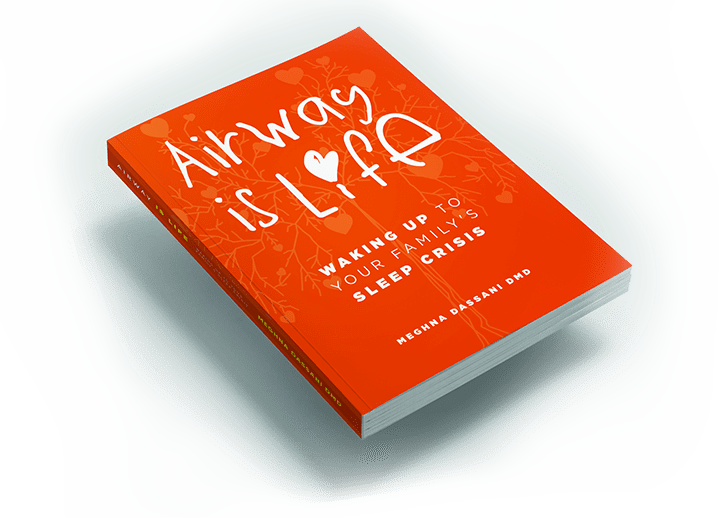Can you reverse the negative effects of sleep apnea?
Around twenty-two million people in the United States suffer from sleep apnea. Sleep apnea is a disorder that causes people to repeatedly stop and start breathing while they sleep due to blockages in their airways. These breathing interruptions are called “apnea events.”
Left untreated, sleep apnea can have serious health consequences, including…
- High blood pressure
- Heart attack
- Stroke
- Type 2 diabetes
- Metabolic syndrome
- Liver problems
- Dementia
Due to a lack of oxygen reaching the brain during sleep, sleep apnea can also cause brain damage, mood issues, and memory loss.
The dangers of sleep apnea should be taken very seriously. But fortunately, the damaging effects can be reversed with proper treatment.
Let’s talk more about sleep apnea and brain damage
There are two types of sleep apnea:
- Obstructive sleep apnea
- Central sleep apnea
Obstructive sleep apnea is the more common type. It occurs when the muscles in the back of a person’s throat relax too much, resulting in either the full or partial blockage of the upper airway during sleep.
When this happens, oxygen is unable to reach the brain. And over time, this can lead to brain damage, which can impair emotional and cognitive functioning and cause problems with…
- Mood
- Memory
- Attention
- High-level thinking
Untreated sleep apnea affects the brain’s hippocampus and frontal cortex, which are associated with executive functioning. Researchers have found several factors that contribute to brain damage related to sleep apnea:
Gray matter volume reduction
Sleep apnea can reduce gray matter in the brain. And gray matter is the tissue that allows the brain to process information.
Long-term sleep deprivation
When you have sleep apnea, you wake up repeatedly throughout the night without being aware of it. This results in sleep deprivation and daytime fatigue. Also, when you frequently wake up, your rapid eye movement (REM) sleep cycles are disrupted. REM sleep is important for memory and learning. And a chronic lack of REM sleep can lead to memory loss and other cognitive impairments.
Hypoxemia
Hypoxemia happens when your blood oxygen levels are lower than normal. And the gasping and choking that occurs when you have sleep apnea can result in intermittent hypoxemia. And this can damage your organs, including your heart and brain.
Blood-brain barrier breakdown
The blood-brain barrier consists of a concentrated group of cells in the brain’s capillaries that protect your brain. When this barrier works properly, it keeps damaging substances, like bacteria and chemicals, out of the brain. And it allows useful substances, like oxygen and water, to go into the brain. When you have sleep apnea, your blood-brain barriers are compromised, which can result in conditions like epilepsy, meningitis, and multiple sclerosis.
How to tell if you have sleep apnea
If you think you have sleep apnea, talk to your doctor right away. The most common symptoms to watch out for include…
- Frequent snoring
- Excessive daytime fatigue
- Gasping or choking during the night
- Morning headaches or dry mouth
- Moodiness or irritability
- Trouble focusing on work or school
If you have these symptoms, your healthcare provider can refer you to a sleep specialist. And they can arrange for you to have an overnight sleep study, also known as a polysomnogram, to see if you have sleep apnea.
How to treat sleep apnea
If you have sleep apnea, the most effective treatment is a continuous positive airway pressure (CPAP) machine. To use this device, you place a mask over your nose and mouth. And while you sleep, the machine keeps your airway open by blowing pressurized air into your lungs.
Research shows that regular CPAP machine use can partially or completely reverse neurocognitive impairments caused by sleep apnea. Additional research is still needed. But so far, findings show that using a CPAP machine consistently for twelve months can improve executive brain functions like verbal fluency and working memory. Regular CPAP machine use can also lead to improvements in alertness and mood.
Dr. Meghna Dassani has practiced dentistry for over two decades and is passionate about the role dentists play in whole-body health. You can learn more at her website: MeghnaDassani.com.
Healthy Sleep Revolution Podcast
Snoring? Tired all day? Trouble focusing?
So many think these symptoms are common in kids and adults when tired. Join us as we debunk some of these common myths and put the spotlight on Sleep Apnea. Discover what constitutes healthy sleep and how we can help ourselves and our kids get the best sleep ever.


